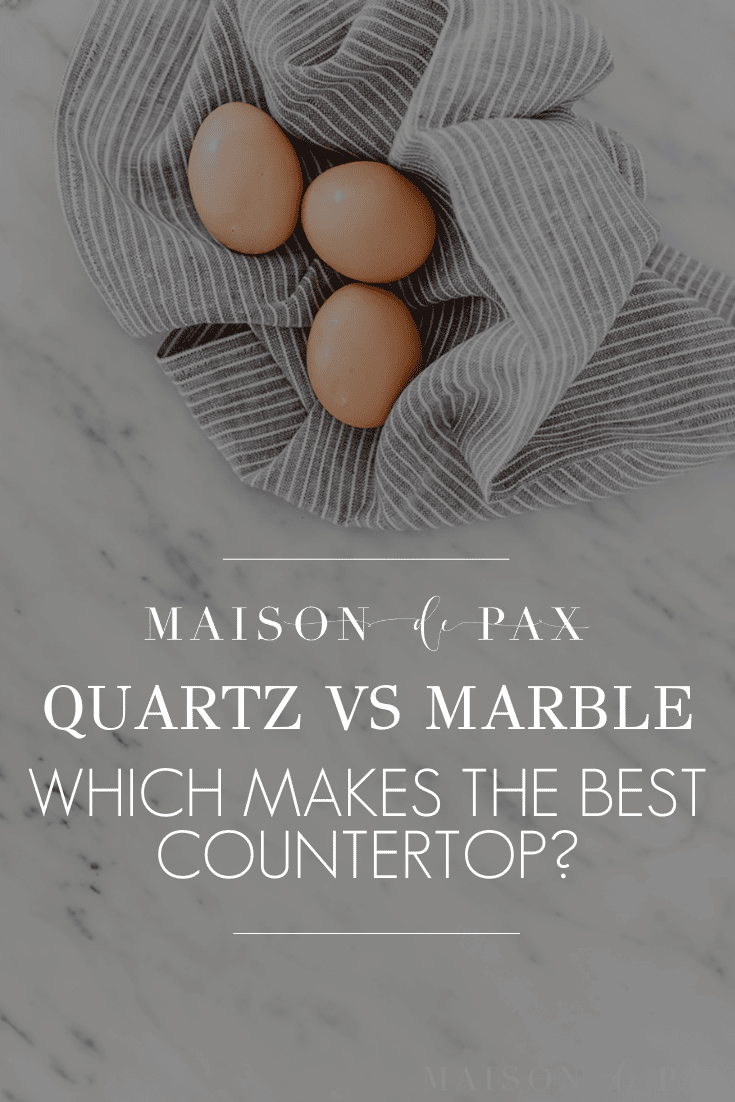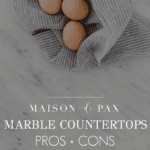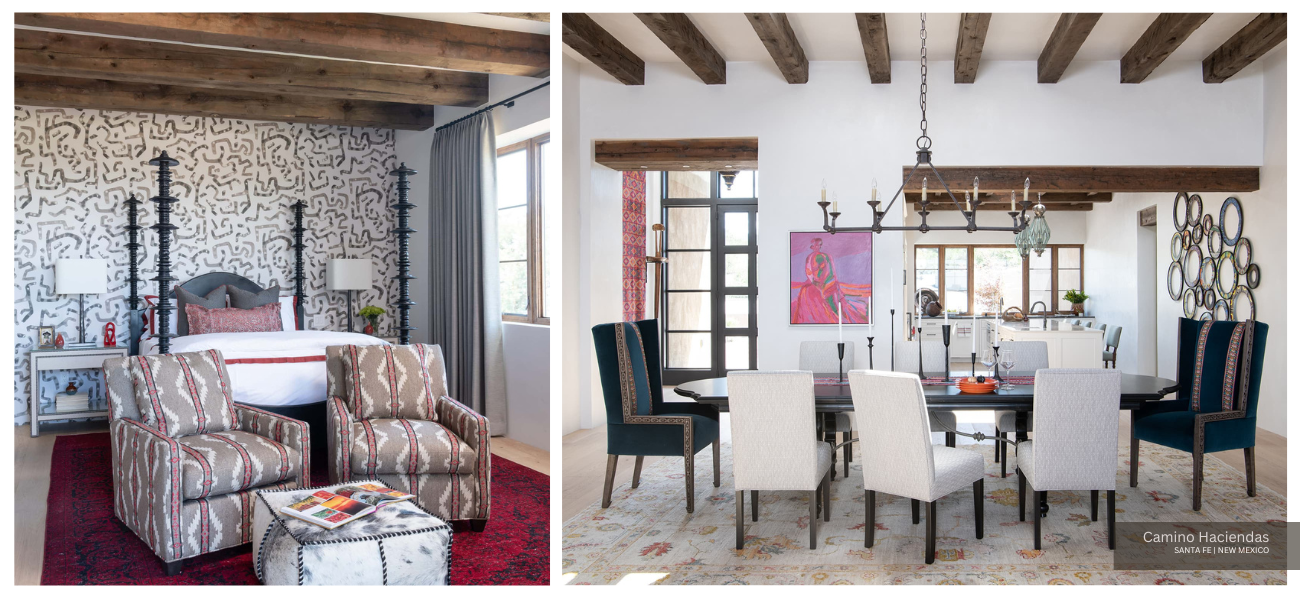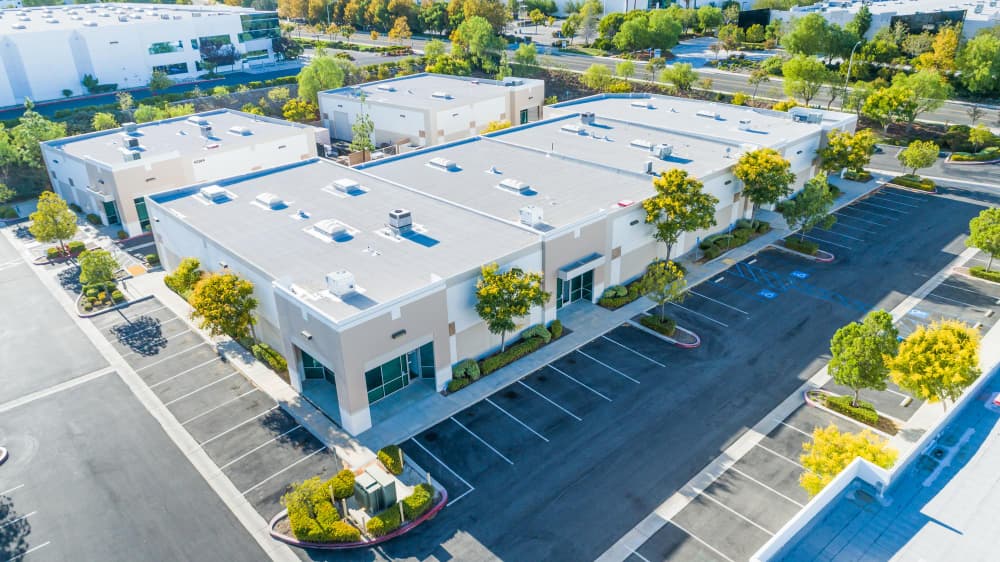Marble and quartz countertops are both popular choices for kitchens and baths, but which is better for your space? Find out all the pros and cons of quartz vs marble to help you choose.
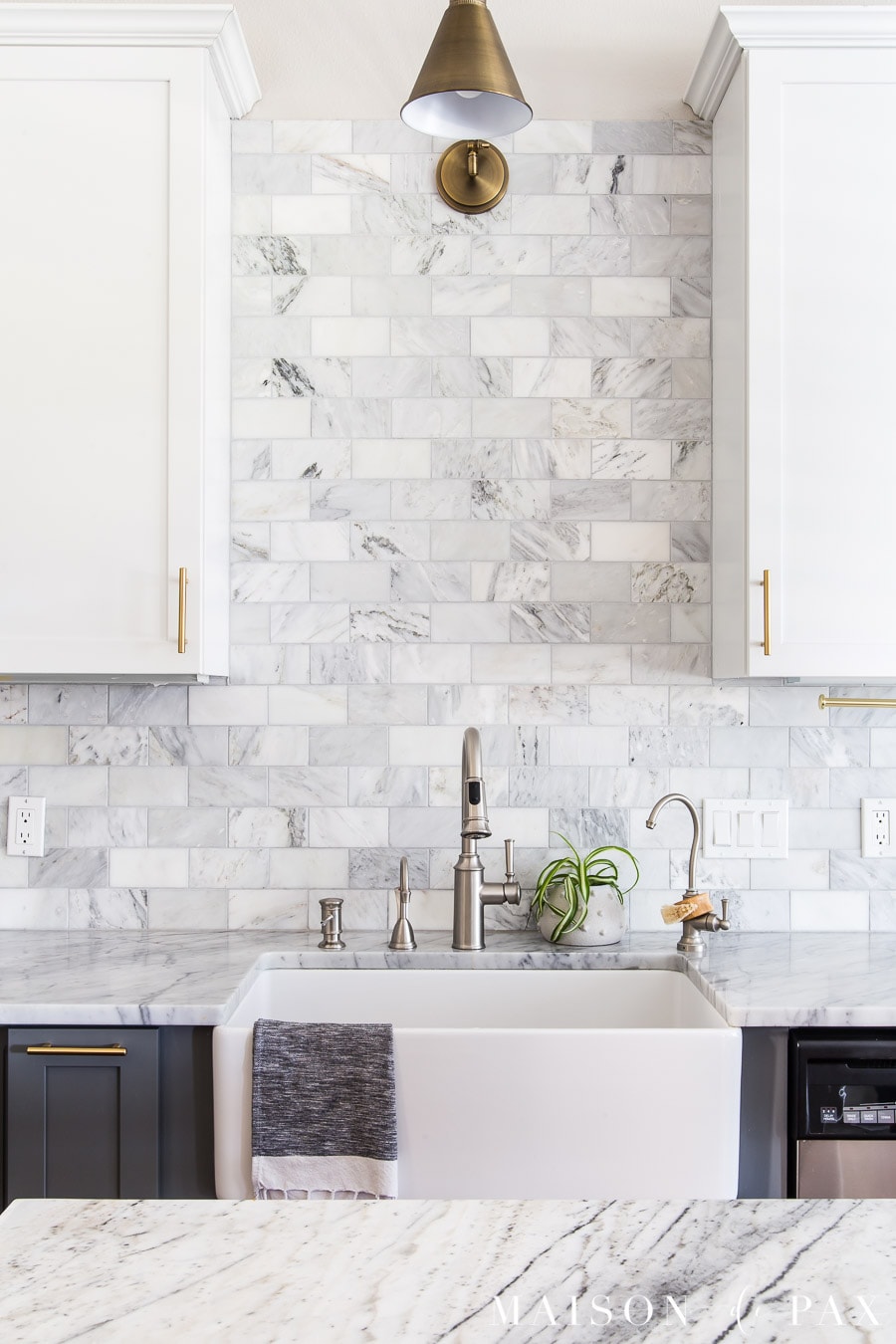
There is no denying the popularity in recent years of marble countertops and quartz countertops with a marble look. The more I work with clients who struggle to decide if they should use marble or quartz in their kitchens and bathrooms, the more I realize that both can be great options for homeowners.
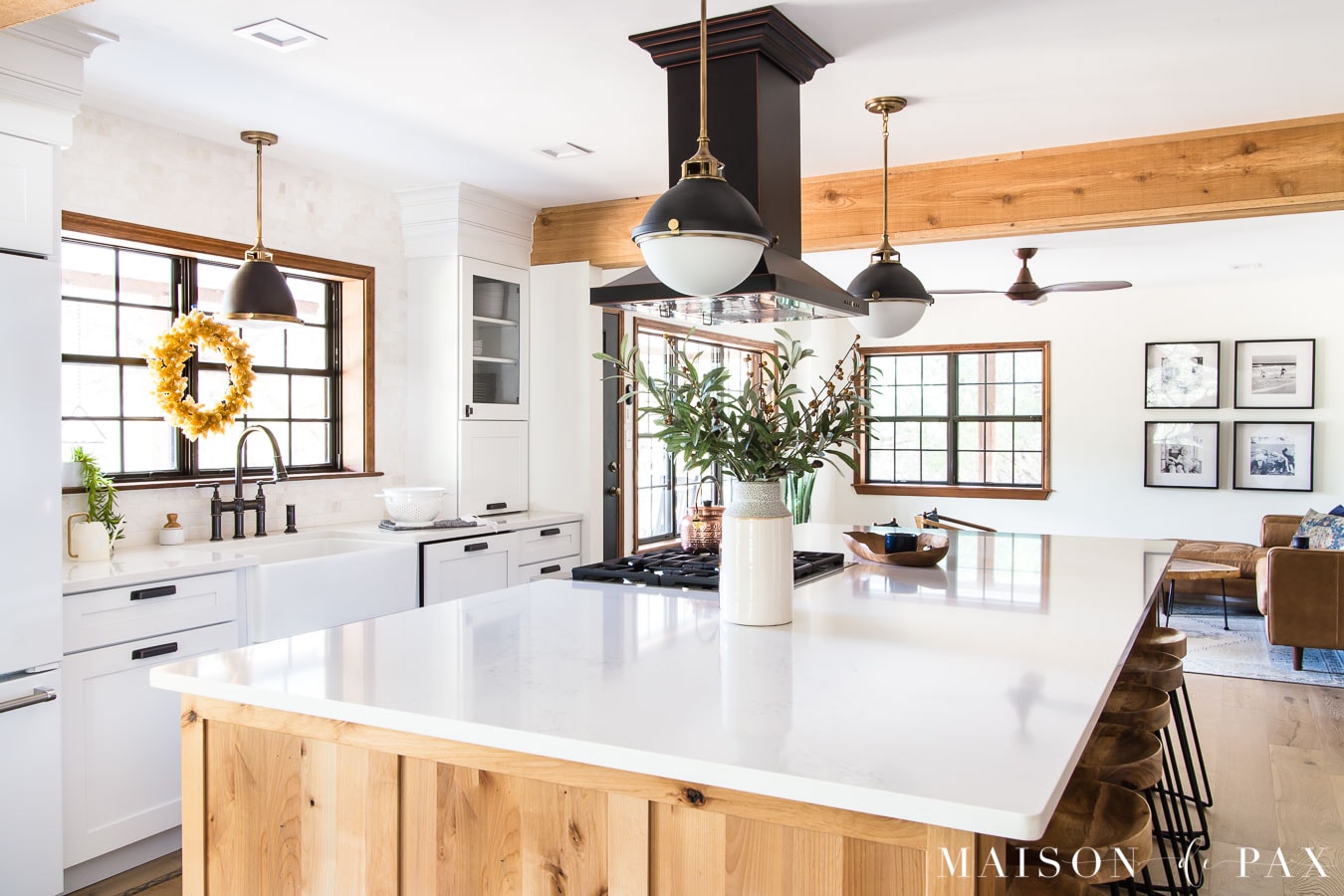
But they are different! And there are pros and cons to each of the countertop materials. I have actually lived with Carrara marble countertops at home for six years and had quartz countertops at our ranch for the last five… So this post will share not only the technical differences, but also our personal experience of living with both in a family with lots of kids.
What is the difference between marble and quartz?
Both require professional installation for use as countertops; both are fairly expensive countertop materials; both are currently popular for use in homes… but what’s the difference?
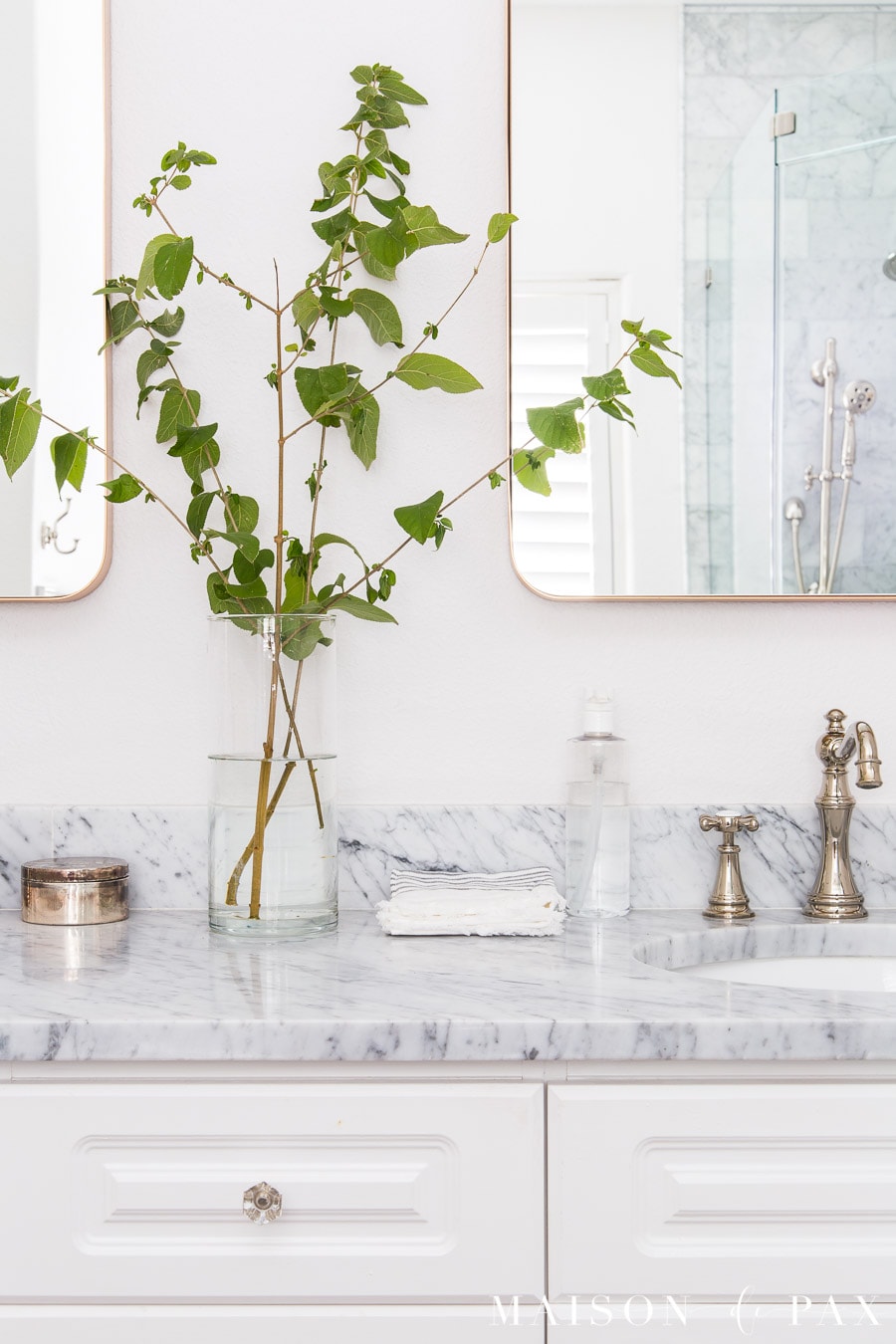
Marble is a natural stone, a metamorphic rock to be specific, that is quarried straight from the earth. It comes in many forms, but the whites and grays of ancient Rome are some of the most iconic. It has been used as a building and art material for centuries, and it can be fabricated into countertops for modern kitchens and baths. What sets it apart is the distinct veining, which is unique to each piece as it is organically formed, giving it a luxurious and elegant aesthetic.
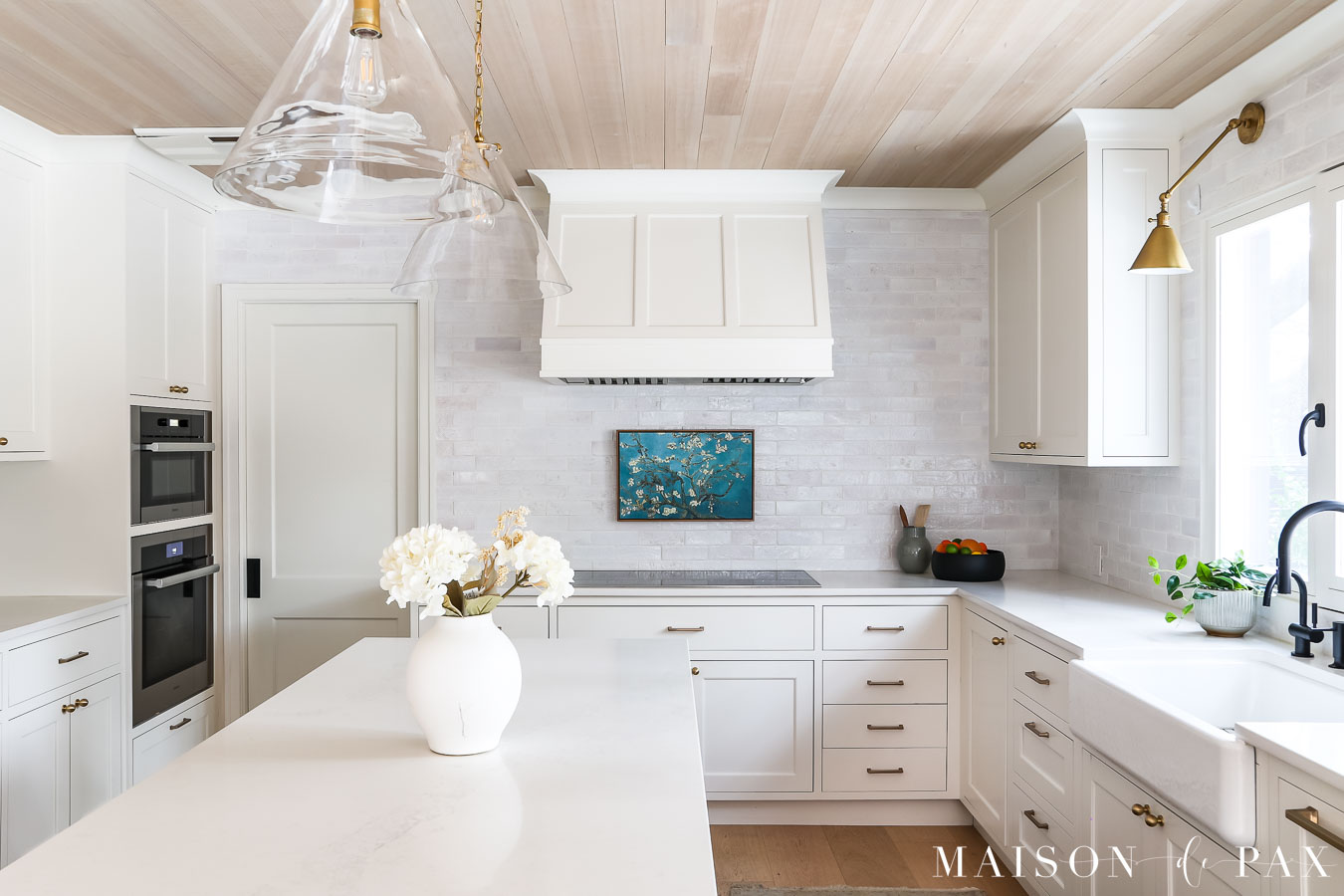
Quartz countertops, on the other hand, are a man-made material. Just to be clear, natural quartz is a naturally occurring mineral (think the shiny rocks you may have collected as a kid), but that’s not what quartz countertops are made of. Quartz counters are ground up quartzite and pigments mixed with synthetic materials like resin and epoxies and formed into a non-porous slab. Different colors of quartzite can be ground and then mixed into different patterns to mimic different kinds of natural stone.
Just to be clear, quartzite countertops are also something entirely different, despite the confusingly similar names. Quartzite is a naturally formed metamorphic rock that is similar to marble but is harder and denser than marble. To confuse matters more, many marbles are mislabeled as quartzite. But real quartzite can be a wonderful choice if you are concerned about the durability of marble but would prefer a natural stone.
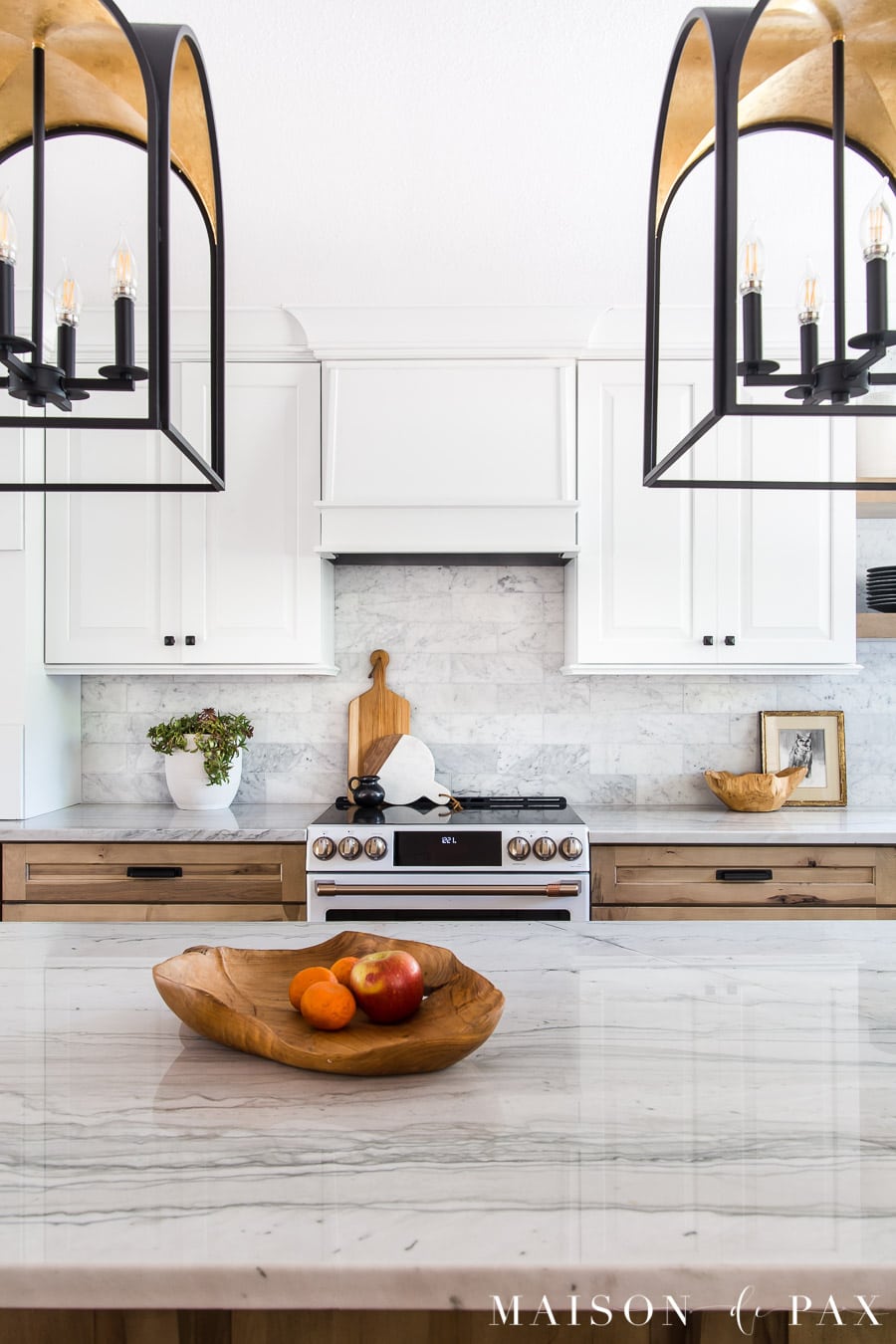
Why did I choose Marble vs Quartz counters?
I thought it might be helpful to briefly explain my choices of both materials. In our own kitchen, a mixture of cost and matching other materials I had already chosen brought me to try Carrara marble. In fact, we put real marble throughout that home (like our master bath) and never regretted it. It did require sealing (which we tried to do roughly once/year, but it honestly ended up being probably more like every other year), but we never had any stains.
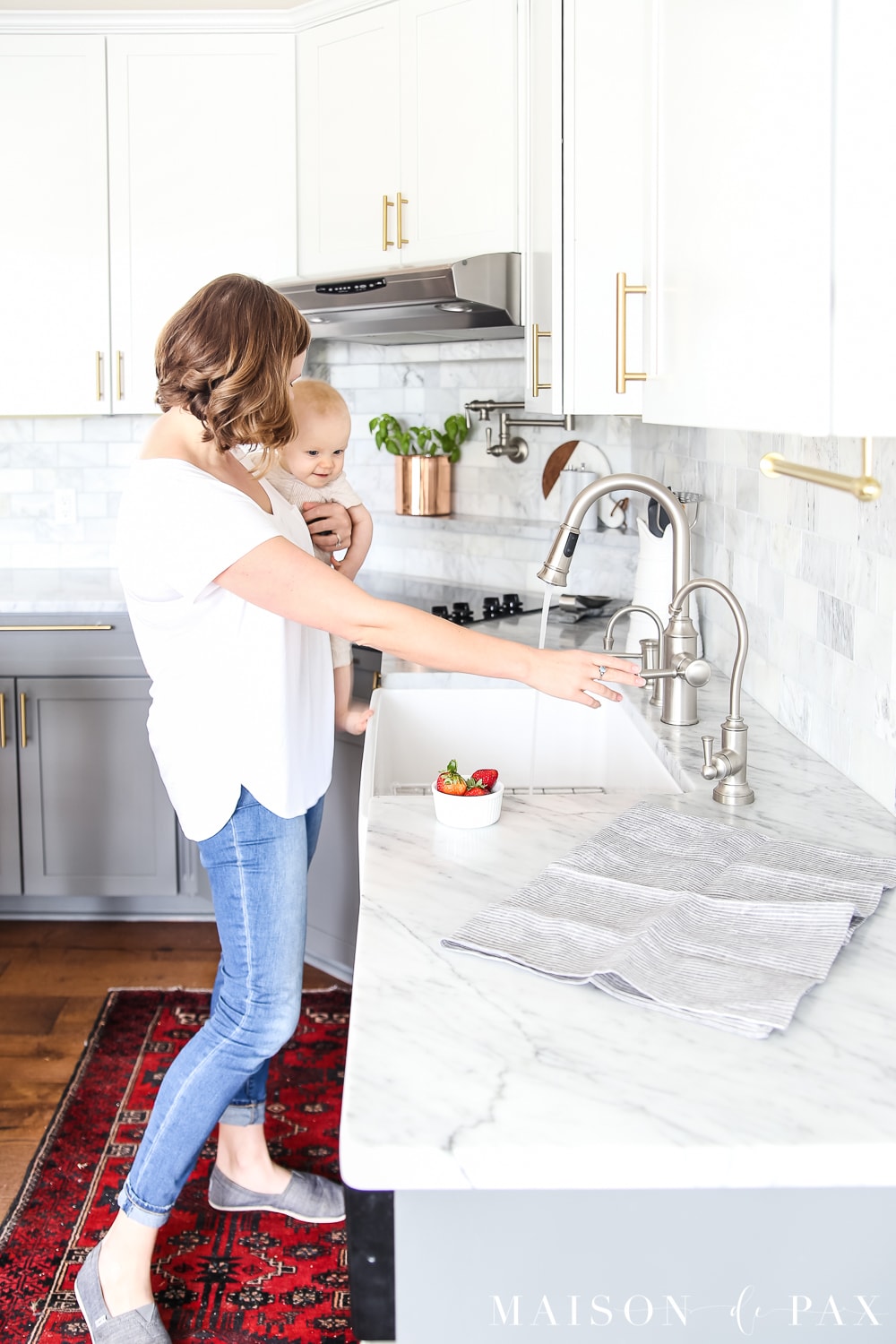
At the ranch house, though, I wanted to be able to allow friends and family to use the place without needing to give extra instructions about caring for the countertops. And while I didn’t find caring for marble particularly burdensome, I wanted to try something lower maintenance. So we installed quartz countertops, and minus one mark from a hot pan, they’ve been wonderful, too.
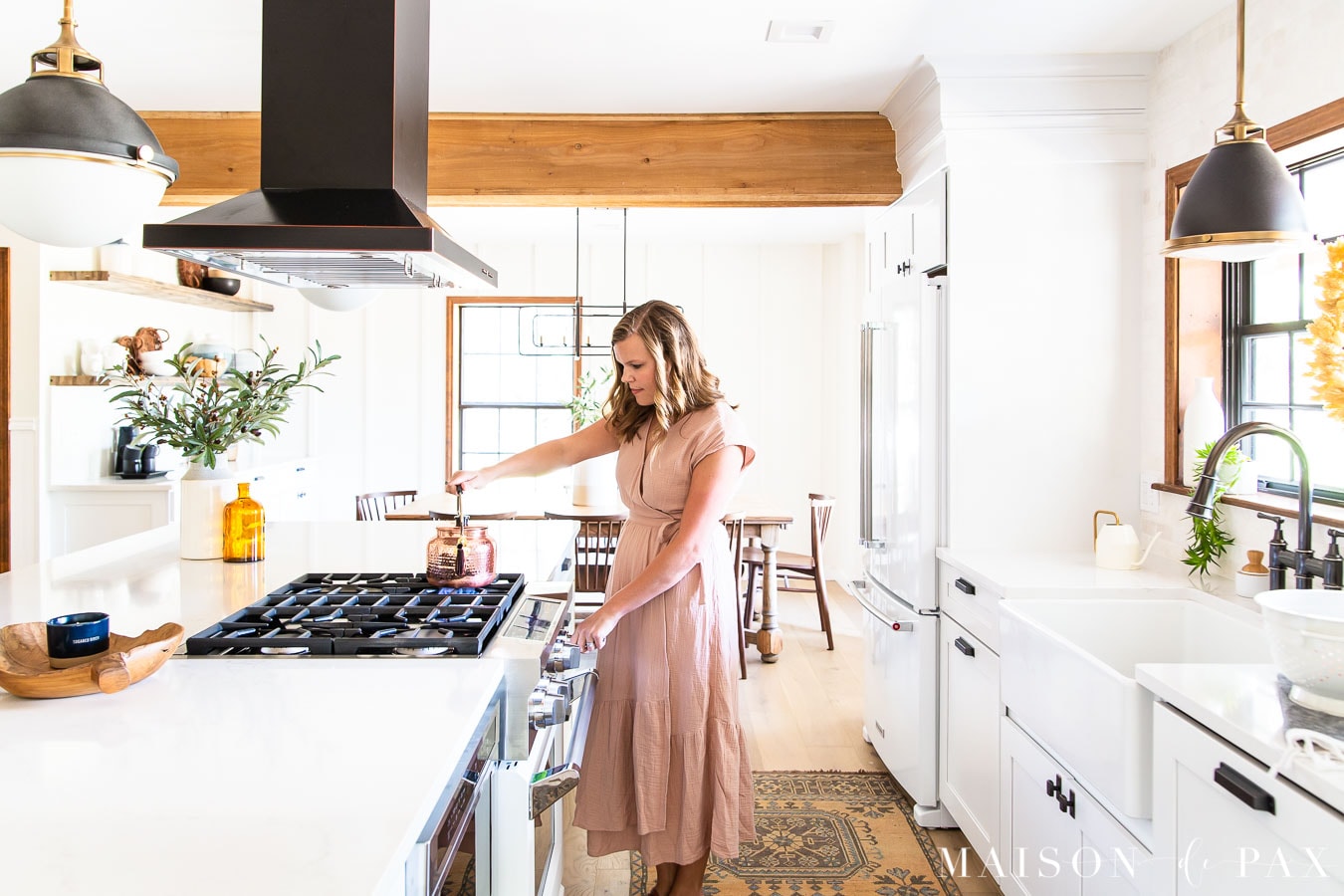
Pros and Cons of Marble
Let’s start with the bad news first, shall we?
Cons of marble: staining, etching, scratching
Staining – Marble is porous, which means that liquids, like tomato sauce or wine, can seep into the stone and leave stains. Fortunately, the right sealer can protect marble from staining. We had marble in all our kitchens and baths for over six years (and we have four young kids!), and we never had any stains despite many spills. We applied this sealer per our installer’s recommendation roughly once/year by simply wiping it on. Get more details on that here.
Scratching – Being soft means that marble can chip or scratch from knives or glass, leaving little white marks. We chipped little bits along the edge of our countertop closest to the dishwasher from time to time. Scratches were a part of life, as well, but you can see how we dealt with those here.
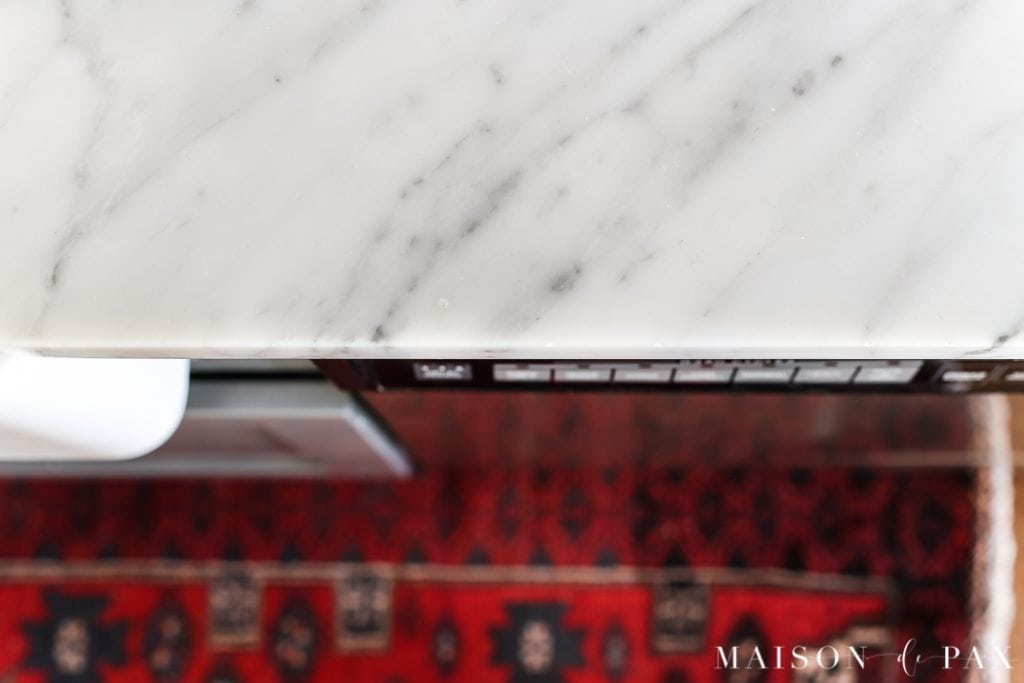
Etching – Because marble is soft, it is susceptible to etching. Acidic liquids (like lemon juice or vinegar) can leave slight marks on the surface that look like water rings that won’t come off. And the etching is more noticeable in direct sunlight. It is also important to use ph neutral cleaners on marble; I found mild soap and a soft cloth to be the best cleaning solution.
As you can see, though, from this picture taken roughly five years after we installed these countertops, none of it was noticeable from a normal standing position.
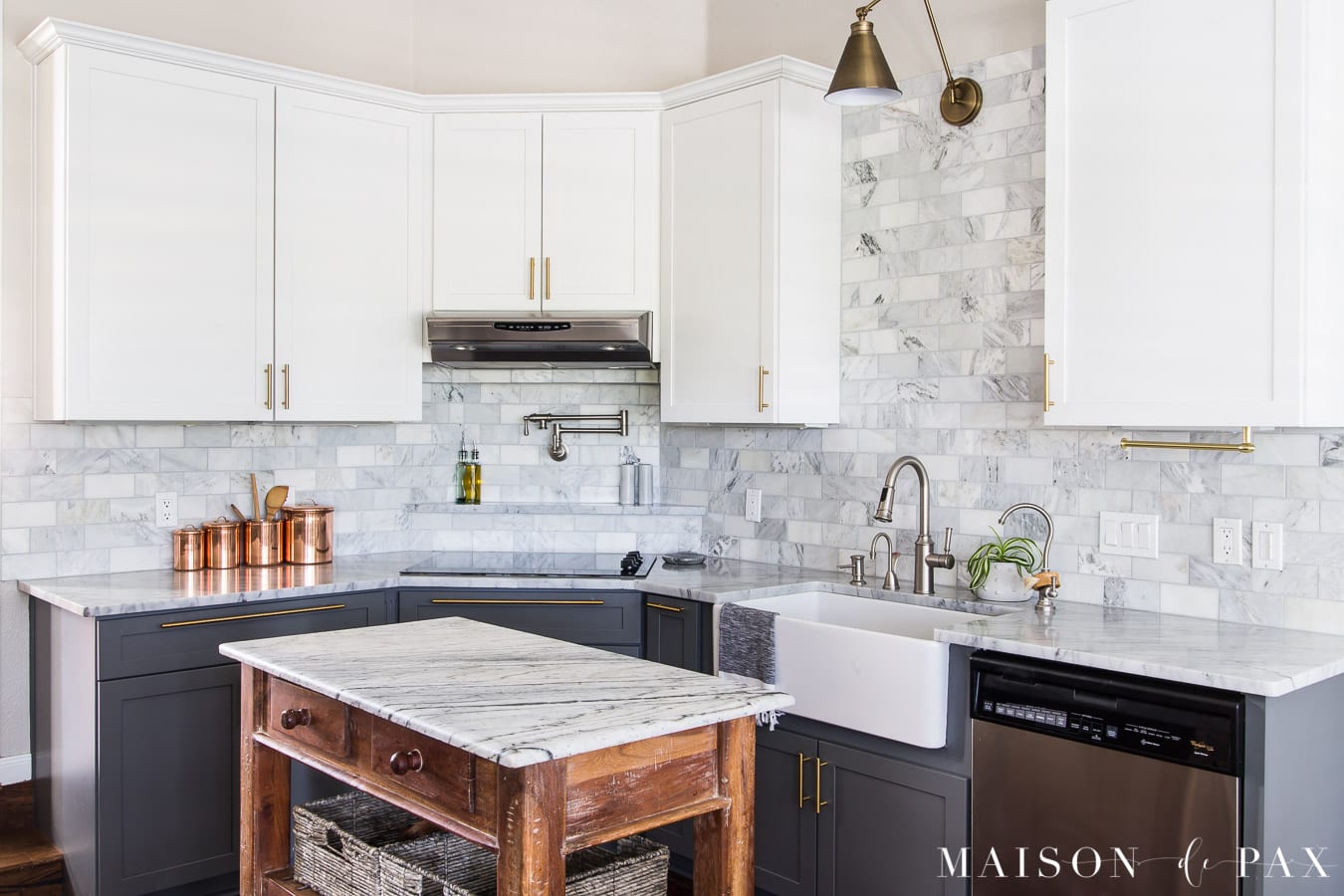
Pros of marble: unique veining, patina, timelessness
Unique veining – There is something about the natural veining of marble that simply cannot be matched when manufactured. If there is no real marble in the room, then quartz can look like a pretty beautiful fake, but next to the real thing, I think quartz pales in comparison.
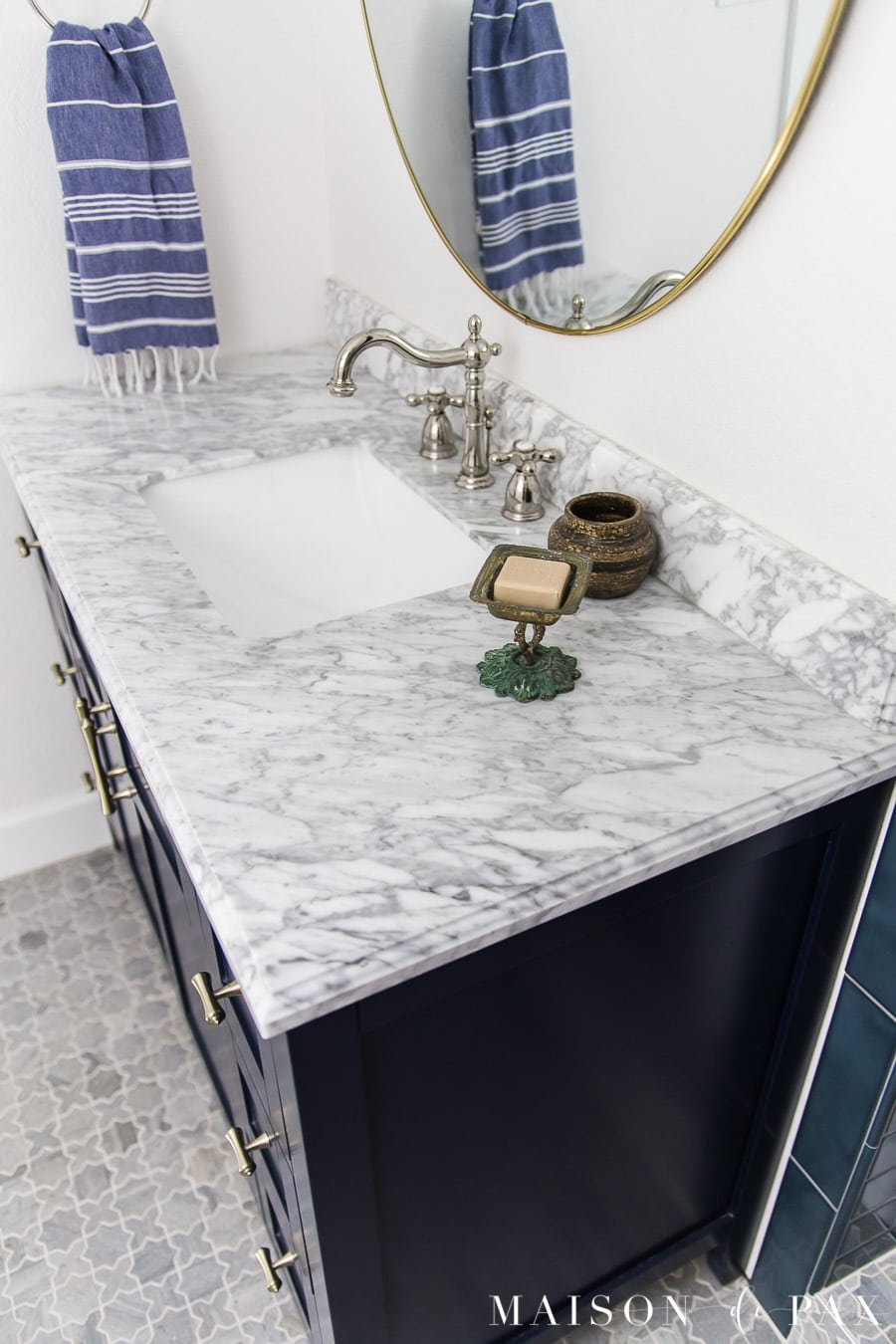
Patina and timelessness – And if you love antique furniture and worn wood floors, then you’ll probably love the slight patina that marble develops over time, too. The first scratch or etch is painful, but like hardwood flooring, each subsequent mark softens the overall effect and makes it look natural. And from a distance, you won’t even see them.
Pros and Cons of Quartz
Again, let’s start with the bad news…
Cons of quartz: manufactured look, can be damaged by heat
Manufactured look – Although there are many different beautiful quartz countertops these days, I still find that they don’t quite look like the real thing, especially when placed next to true natural stone. The uniform look of quartz also makes the visible seams feel more obvious to me, whereas the organic nature of natural stone seems to hide them a bit better. (Note: I still think quartz can be beautiful! See below… )
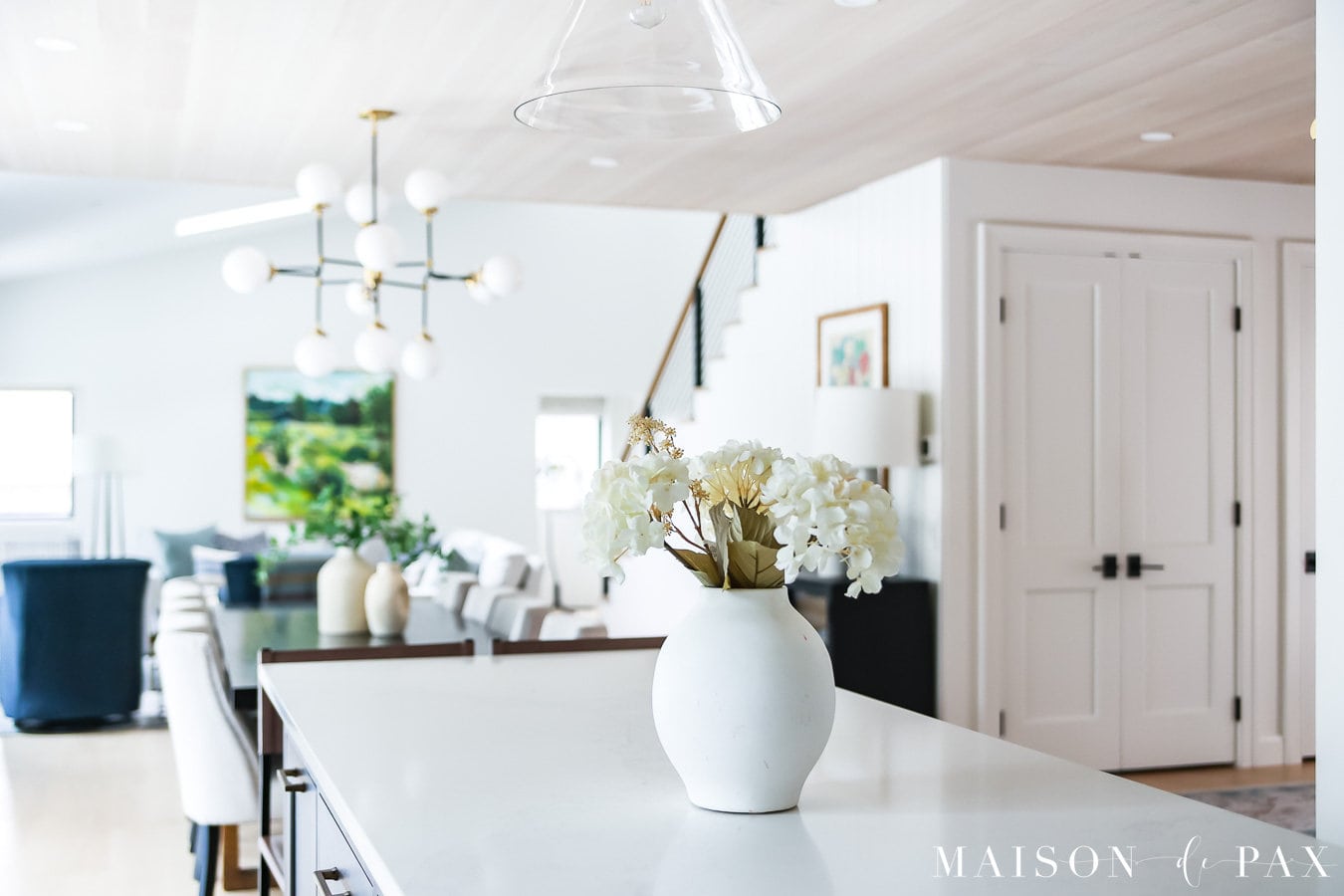
Heat damage – Technically, quartz counters are very heat resistant, but at the ranch, someone obviously put a hot pot on the counter beside the stove and it left a ring. You can’t see it from most parts of the space, but it does show up when you are sitting at the bar and looking towards the sink. Does it ruin the overall look? Not at all, but in an otherwise unmarred surface, the ring stands out pretty clearly. In short, be sure to use trivets and hot pads.
Pros of quartz: durability, low-maintenance, aesthetics
Durability – Keep reading for more explanation of various stones and hardness, but for now I’ll just say that quartz is manufactured specifically for beauty and durability. It is a hard stone that is scratch resistant.
Low maintenance – Quartz is also stain resistant as it is non porous, so liquids remain on top and do not penetrate into the material to cause stains. Because of this, you can also use most general cleaners and do not have to worry about etching.
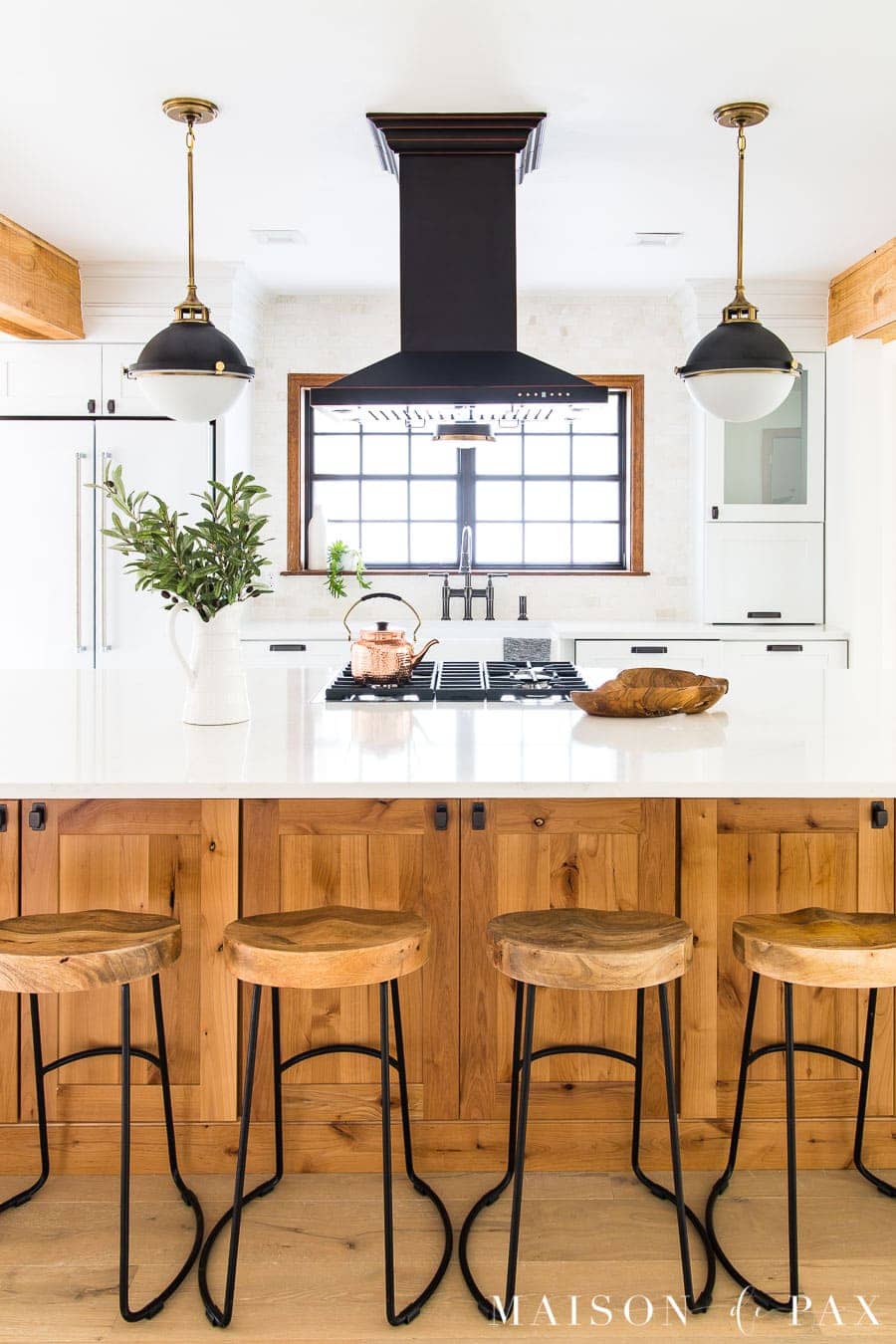
Aesthetics – despite my personal love of real natural stone, there truly are some gorgeous quartz countertops available these days. And manufacturers seems to be coming out with better and more options every day. Whether you want the look of Calcutta marble or black soapstone, you can find a quartz slab that is a similar look without the maintenance.
What is more expensive, marble or quartz?
That depends. I actually thought I wanted quartz for our kitchen years ago and searched and searched for a quartz that truly looked like real marble… and I simply couldn’t find one that I loved.
Since I had already chosen a Carrara marble backsplash, all the quartzes I tried looked fake against the natural stone. Then I found out that Carrara marble countertops would be approximately 2/3 of the price of the quartzes I was considering. That definitely helped me make my decision.
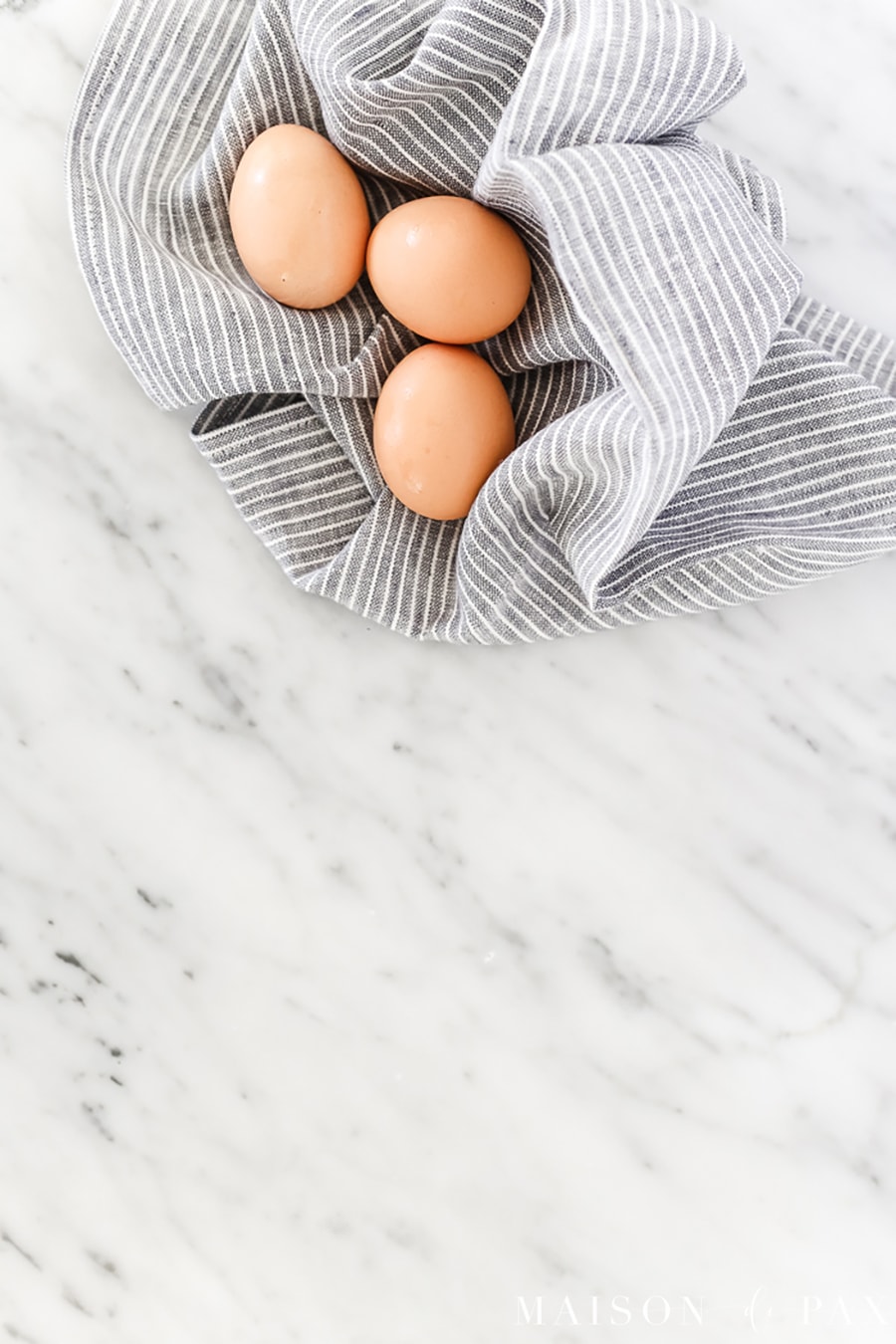
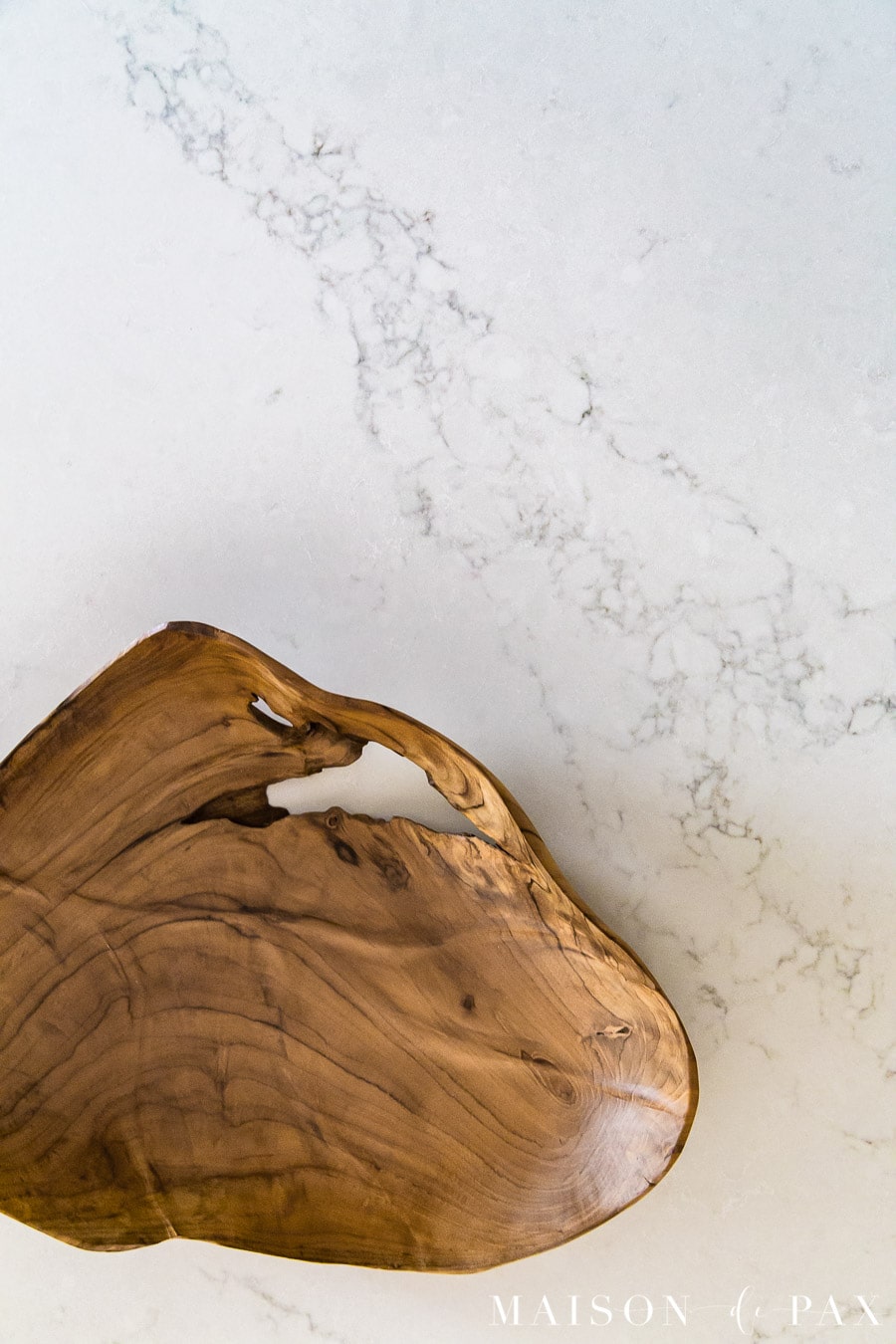
However, like most things, there are more expensive marbles and less expensive ones. Some types of marble costs more than others, and the same is true of quartz. Generally, you can pay anywhere from $75 per square foot to $200 per square foot installed for either of these materials, so I would encourage you not to discount one or the other based solely on your idea of the expense. Talk to a local fabricator to determine the actual cost of the products available to you.
What is the most durable stone for kitchen countertops?
The Mohs hardness scale is a tool for describing the hardness of a material. Glass or a knife edge typically fall around 5. Marble is only 3 (which is why scratching it is a danger). Granite is a 6. Quartzite and quartz are both a 7, making them unlikely to be scratched by dishes or cutlery.
In short, marble is one of the least durable stones for kitchen countertops.
However, marble is theoretically more heat-resistant than quartz. So there are more considerations than just hardness. I also have found that the organic movement of natural marble patterns and veining is much better at hiding imperfections. The perfectly smooth, patterned quartz tends to show what little imperfections it has (like the heat mark I mentioned above).
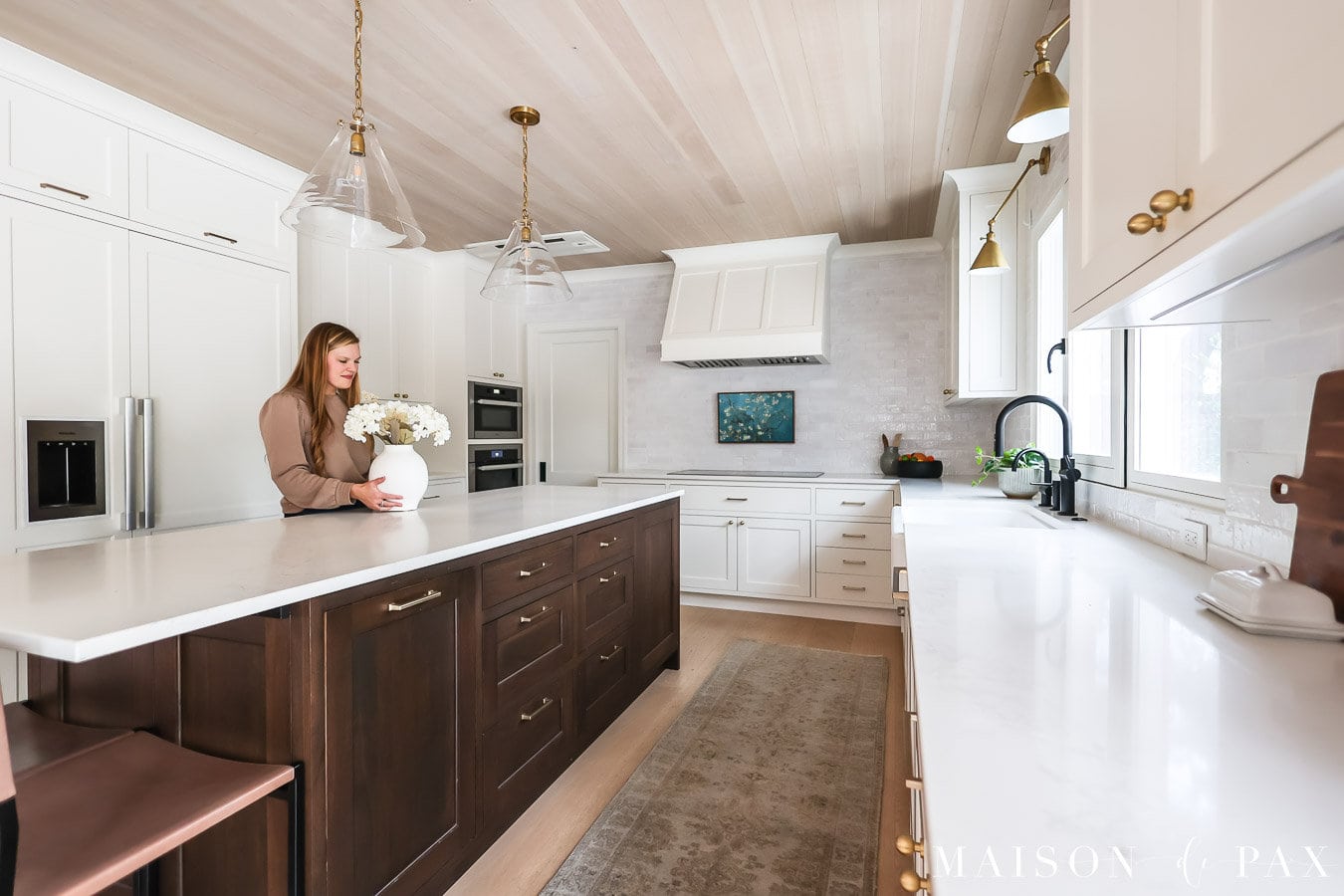
Which stone countertop is easiest to maintain?
If you count engineered stone (i.e. man made) as stone, then quartz is probably the easiest of the countertop surfaces to maintain. Since it is non-porous, you can simply clean it with any general cleaner, and it does not require sealing.
However, I have never found using non-acidic cleaners or sealing my marble once/year to be extremely burdensome.
What is better for kitchen, marble or quartz?
In short, I think it depends on your desires and needs!
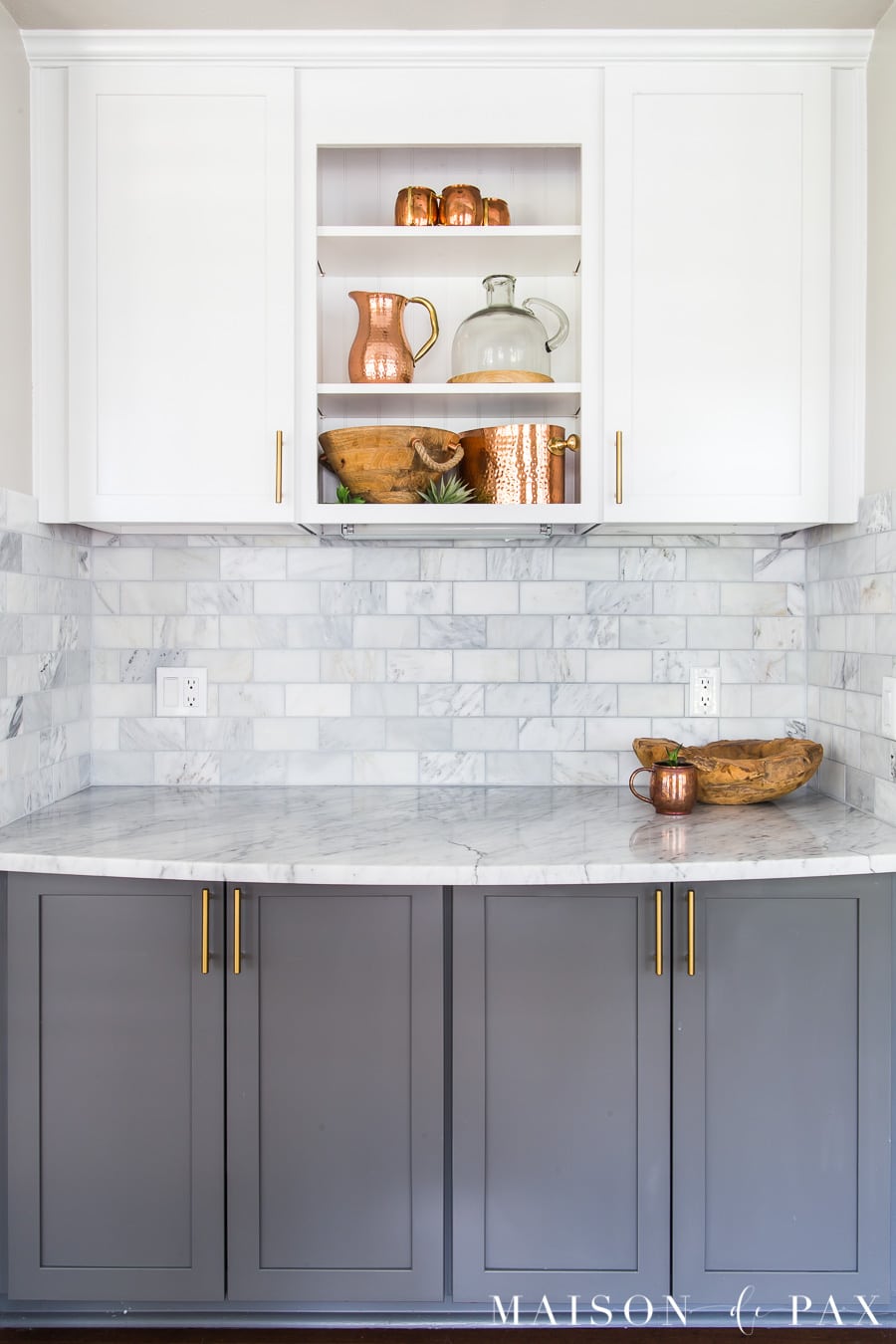
For the most natural look and a truly unique veining, authentic marble is an incredible option. With the proper cleaner and yearly sealing, it can stay stain free and develop a beautiful patina of wear over time. And if you ever need it, you can have it re-polished to a honed or polished surface.
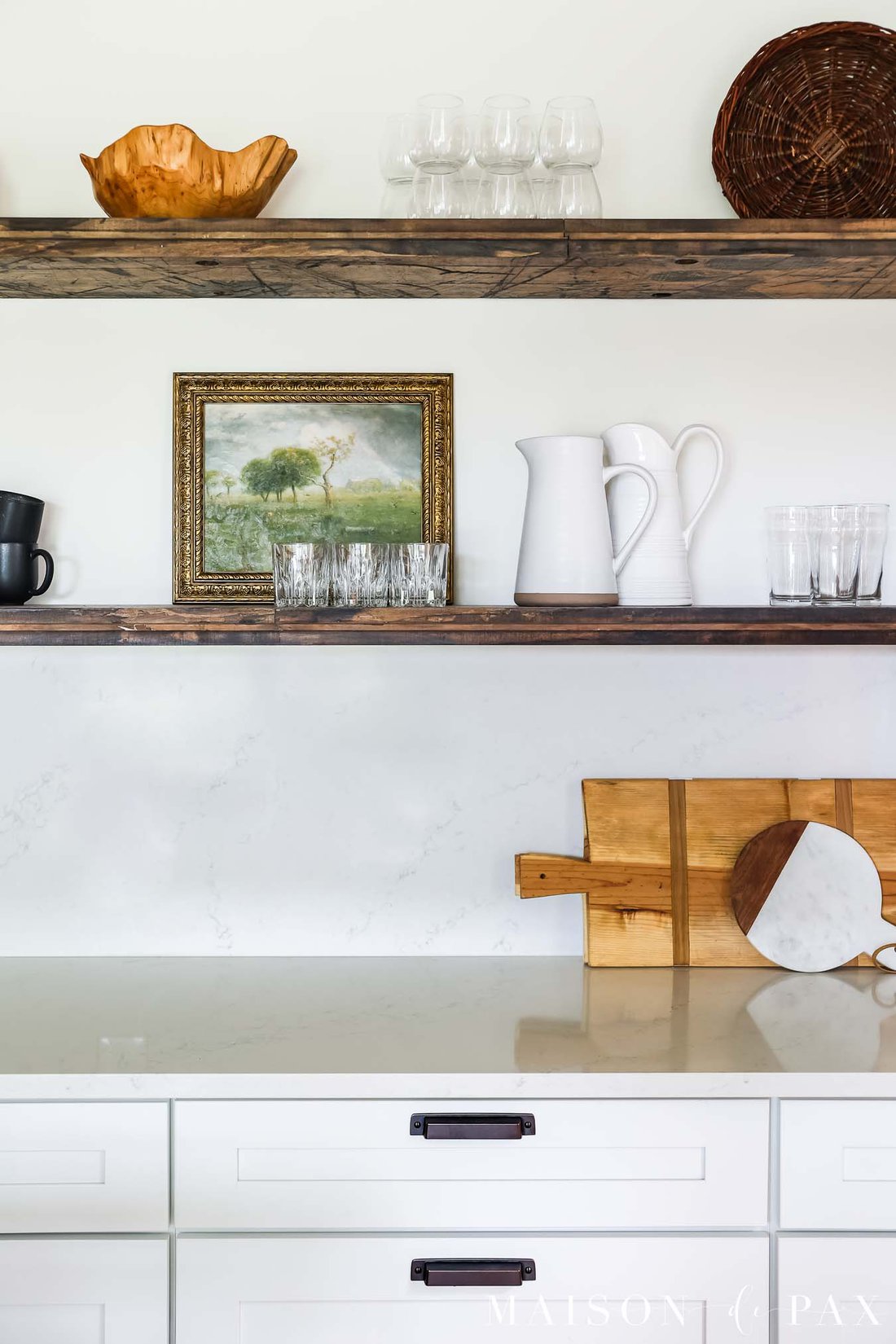
For the lowest maintenance, quartz is a great choice. You can have the look of many different natural stones without the need to seal or concern yourself with etching. If you do manage to scratch or mar the surface with heat, though, it stands out pretty severely against the otherwise smooth surface.
Marble vs Quartz Countertops
I hope you found this comparison useful! Whether it’s your kitchen countertops or baths, both marble and quartz can be wonderful options.
